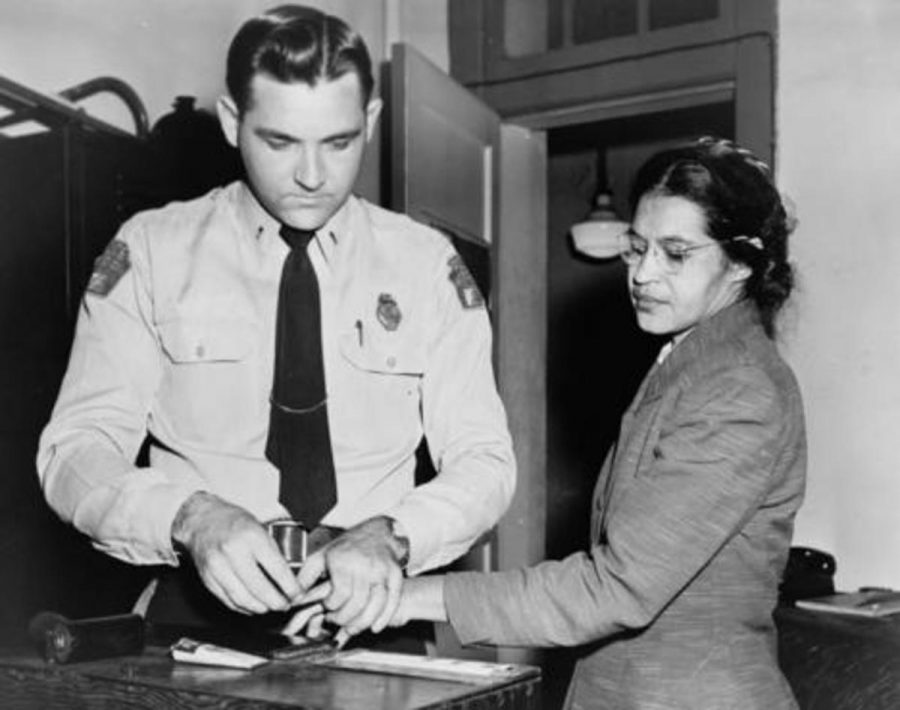Rosa Parks and her defiant act helped set the wheels of change into motion.
It was Dec. 1, 1955 in Montgomery Alabama. Parks, tired of being treated like a second-class citizen, refused to give up her seat to a Caucasian passenger; this resulted in her arrest and a $14 fine.
There has been a great misconception that Parks wouldn’t give up her seat because she was tired from a long day of work, but the truth is that she could no longer take the injustice that she dealt with every day.
“(They said) that my feet were hurting and I didn’t know why I refused to stand up when they told me. But the real reason of my not standing up was I felt that I had a right to be treated as any other passenger. We had endured that treatment for far too long,” said Parks.
Parks was in violation of a city ordinance that stated that African Americans had to give up their seats to Caucasian passengers. Parks arrest triggered a bus boycott by African Americans in Montgomery, Alabama that lasted 381 days. The boycott, organized by Martin Luther King Jr., was one of his first major actions as a civil rights leader. The boycott ended because the Supreme Court ruled segregation in transportation was unconstitutional.
Parks died Oct. 24, of natural causes in Detroit at the age of 92. Her body was laid to rest in the Rotunda on Oct. 30 and 31, making her the first women to be placed in the Rotunda in Washington D.C.
Parks’ arrest happened almost 50 years ago, but the impact of her action still lives on today.






